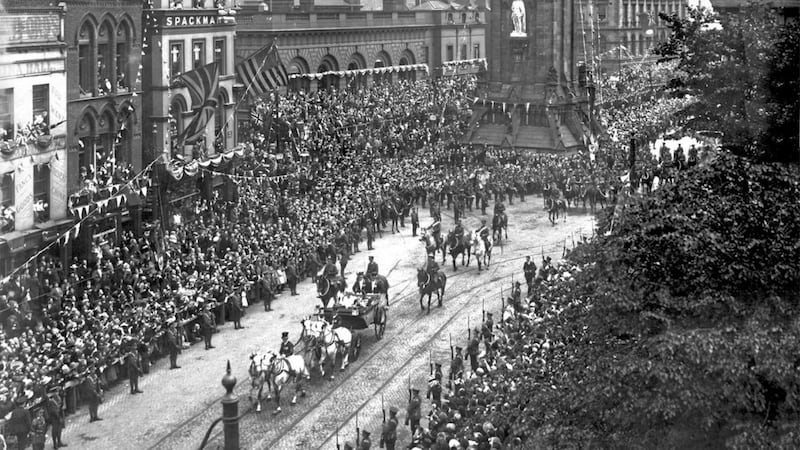FOR this decade of centenaries, the Church of Ireland Gazette is an important source for understanding historical events in Ireland, north and south.
It provides a valuable record of developments around the establishment of Northern Ireland in 1921.
While the paper, based in Dublin, always covered the affairs of the Church of Ireland countrywide, the editorials tended to reflect a southern unionist perspective.
At the same time, every week, extensive 'Notes from Belfast' reported on northern matters.
During 1920, editorials, "in common with all southern unionists", had declared strong opposition to the idea of partition as proposed in the new legislation for two parliaments in Ireland.
By early 1921, however, after the Government of Ireland Act received royal assent, the paper declared that partition was now a fact which had to be accepted.

An editorial on January 14 1921 expressed the hope that there would be "ultimate unity through the Council of Ireland".
The paper also carried reports on the ongoing violence between crown forces and the IRA in many parts of Ireland.
Editorials regularly made pleas for peace. On May 13, for example, the Gazette recorded the speech of Charles D'Arcy, Archbishop of Armagh, at the General Synod when he spoke at length of the violent state of the country, referring to the terrible loss of life, including members of the Church of Ireland, some of whose names he recorded.
In spite of this violence, normal church activities continued in many parts of the country. A regular feature in the paper's columns was the dedication of war memorials in local churches, such as a tablet in St Paul's church in Dublin in memory of 47 members of the parish who were killed in the world war.
On June 10, there was a description of the first sitting of the Northern Ireland parliament which led to the establishment of the government of Northern Ireland.

The Gazette also reported a special Sunday intercessory service in St Anne's Cathedral in Belfast for the new parliament and government.
Among those present were various politicians, including Sir James Craig, the prospective prime minister, and the four Church of Ireland bishops whose dioceses were in the new state, as well as leading Methodist and Presbyterian clergy.
The preacher was Archbishop D'Arcy who urged that regard be given "to the welfare of all the people of this province, of every creed and class, of the minority as well as of the majority".
The official opening of the Northern Ireland parliament by King George on June 22 was recorded in the Gazette on July 1.
The large, enthusiastic crowds in attendance and the "solemn pageantry" of the opening moments of the parliament in Belfast City Hall were described. The paper noted especially: "His majesty's speech put a totally new aspect on the Irish situation." His appeal for peace gave new hope for the future.
In its July 1 report, the Gazette observed that the king's speech had proved to be the signal for a series of important steps towards negotiations between Sinn Féin and the British government.
This led to the July 11 truce which the Gazette, on July 15, declared, "every loyal Irishmen received with the deepest joy".
Professor Brian M. Walker is author of Irish History Matters: Politics, Identities and Commemoration, published by History Press Ireland. The book includes a chapter on 'Southern Protestant Voices during the War of Independence and the Civil War: Reports from Church of Ireland Synods'.
The Church of Ireland Gazette's online archive can be accessed at esearch.informa.ie/rcb
The Church's 'Archive of the Month' series has been reflecting on the 'birth of partition'








